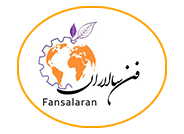Celltrion will invest 700 billion won ($500 million) to acquire a biopharmaceutical manufacturing facility in the United States in a strategic move to ease escalating tariff uncertainties under the Donald Trump administration, the company’s chairman said Tuesday.
The Korean firm, most famous for its biosimilars, was selected as the preferred bidder to take over the drug substance plant in an undisclosed U.S. region. Celltrion won the bid over two global rivals. Under a nondisclosure agreement, the company declined to confirm other details on the deal.
“By 2033, we expect our biosimilar portfolio to grow to 41 products, and the U.S. will serve as an essential market,” Chairman Seo Jung-jin said during an online press conference.
“If the U.S. government wants products made in the U.S., we will produce and sell locally to reduce tariff uncertainties.”
Celltrion plans to complete all remaining legal procedures for the acquisition of the factory by the end of 2025.
Celltrion has already secured two years of inventory in the U.S. to preemptively deal with the tariff uncertainties. The acquisition of the new plant will pave the way for the company to fully hedge against U.S. tariff risks, according to the company.
“Our latest decision is aimed at eliminating all the tariff uncertainties and stably supplying our future products to the world’s largest economy,” Seo said.
As Korea and the U.S. are still engaged in tariff negotiations, no specific tariff rate has been confirmed regarding biopharmaceutical products.
Depending on the upcoming announcement on pharmaceutical tariffs, the head of Celltrion left open the possibility of injecting more capital to expand its production capacity at the factory.
“For now, we plan to invest 700 billion won for the plant, but there stands a possibility that Celltrion invests more capital of around 300 billion won to 700 billion won to expand the production capacity there,” Seo said.
The expanded manufacturing facility will handle the full production cycle from drug substance to drug product, and even packaging, within the United States. This will enable the company to engage in quicker drug distribution and improve cost efficiency. The company also expects the new plant to help enhance its profitability by reducing both production and logistics costs.
Seo also shared an updated outlook for its business this year.
“We initially set an annual sales target of 5 trillion won for 2025, but after reviewing our second-half plans, the figure is forecast to reach within the range of 4.5 trillion won to 4.6 trillion won,” he said. “Despite some possible adjustments, our overall business structure remains solid.”






